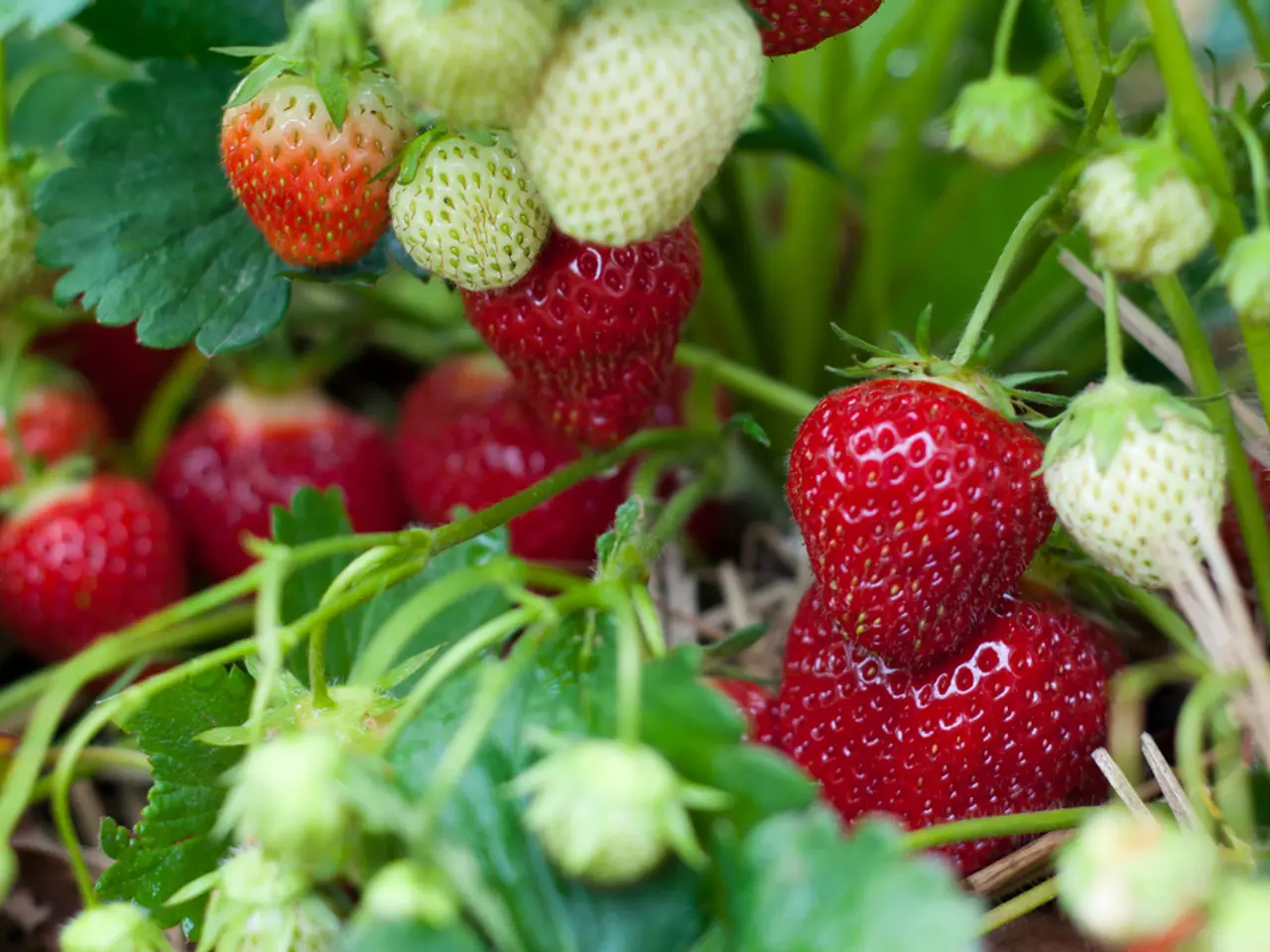Moving TPS to Agriculture - Enhancing Communities through Strawberries and Tomatoes Farming
In an innovative move towards sustainability and community engagement, Toyota has integrated its manufacturing expertise into farming operations, resulting in a significant increase in productivity. The company's carbon-neutral agriculture project, which includes tomato and strawberry farming, has seen a 50% productivity boost primarily through the application of the Toyota Production System (TPS) principles beyond manufacturing into farming operations.
This unique approach to agriculture involves streamlining workflows, reducing waste, and optimizing labor and supplies, much like the original TPS application in automotive manufacturing. Improved nutrient management, both organic and inorganic, may also be a contributing factor for strawberries.
Toyota's tomatoes are delivered to elderly residents in Miyoshi City, Aichi Prefecture, as part of bento boxes prepared by volunteers. The farm and kaizen (continuous improvement) professionals are growing strawberries at Toyota's facilities, while the Kamigo Plant, in collaboration with professional farmers, grows valuable strawberry varieties.
The tomato and strawberry cultivation in Toyota's production plants is a testament to the company's commitment to sustainable practices and community engagement. The agricultural projects at Toyota are part of a broader approach to produce happiness for all, starting in the community. These agricultural efforts aim to spread smiles throughout the community, rather than pursuing profit.
The agricultural initiatives at Toyota are focused on building strong community ties. The tomato cultivation at Toyota's facilities is not just for carbon neutrality, but also for community engagement. Toyota's unique approach to agriculture began with a focus on carbon neutrality and has led to stronger connections with local communities.
Moreover, the innovations developed by Toyota in their carbon-neutral agriculture may also prove useful to local farmers, potentially benefiting them due to increased productivity and waste elimination. The tomato greenhouse at Toyota's Myochi Plant makes use of the facility's exhaust heat, demonstrating Toyota's commitment to sustainable practices.
Toyota's carbon-neutral agriculture is not primarily driven by profit motives, but by a commitment to community and technology. This initiative is a unique take on traditional farming practices, focusing on carbon neutrality and community connections. The "best-in-town" approach at Toyota translates to agriculture, as shown by their tomato and strawberry-growing facilities.
In conclusion, Toyota's integration of manufacturing expertise into farming operations has led to a significant increase in productivity and a strengthening of community ties. This innovative approach to agriculture is a testament to Toyota's commitment to sustainability and community engagement.
- Toyota's agricultural initiatives, focusing on the growth of tomatoes and strawberries, have been significantly influenced by their expertise in business and technology, applying the principles of the Toyota Production System (TPS) for streamlining workflows, reducing waste, and optimizing labor and supplies.
- Apart from benefiting from improved productivity, Toyota's carbon-neutral agriculture projects extend beyond mere profit, aiming to build strong community ties and spread happiness throughout the local community, as evidenced by the delivery of tomatoes to elderly residents in Miyoshi City.
- By sharing its innovative practices in carbon-neutral agriculture with local farmers, Toyota's approach to sustainable farming could potentially have far-reaching benefits for the entire community, promoting a "best-in-town" lifestyle through cooperation and advancements in technology.




